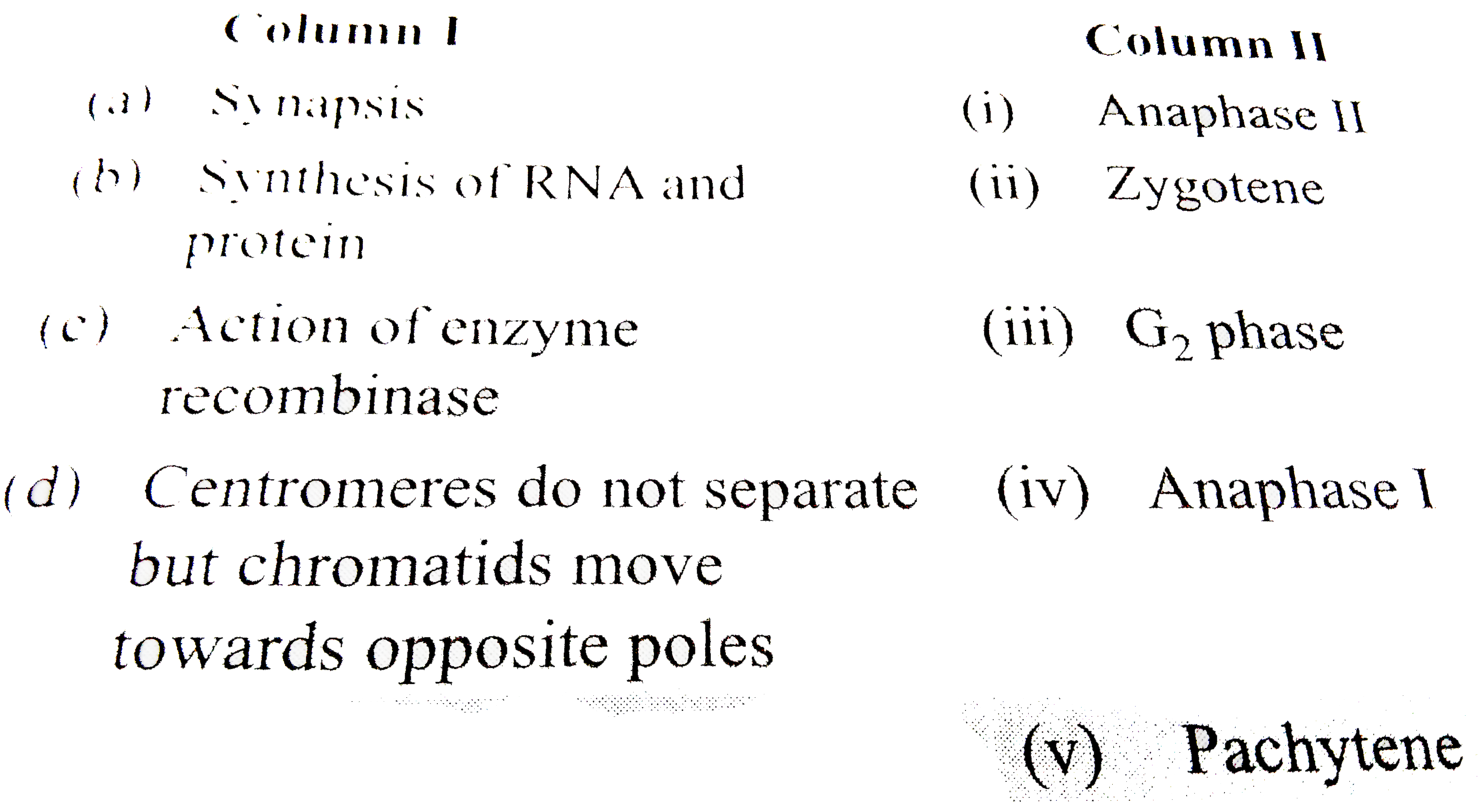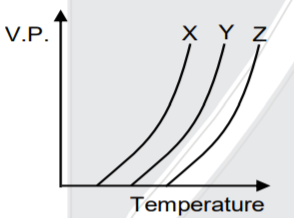Which of the following are arranged in the correct order?
I. Gas>LiquSol (Thermal energy)
II. Gas>LiquSol (Intermolecular force)
III. SolLiquGas (Intermolecular force)
Select the correct option.
I and II
II and III
I and III
Only I
The correct Answer is:C
To solve the question regarding the arrangement of states of matter based on thermal energy and intermolecular forces, we will analyze each statement one by one.
Step 1: Analyze Thermal Energy
- Statement I: Gas>LiquSol (Thermal energy)
- In gases, the molecules have the highest thermal energy because they move freely and rapidly. In liquids, the molecules have moderate thermal energy as they are in close contact but can still move around. In solids, the molecules are closely packed and have the least thermal energy as they vibrate in fixed positions.
Conclusion: This statement is correct.
Step 2: Analyze Intermolecular Forces
- Statement II: Gas>LiquSol (Intermolecular force)
- In gases, the intermolecular forces are the weakest because the molecules are far apart and move freely. In liquids, the intermolecular forces are stronger than in gases but weaker than in solids, where the forces are very strong and hold the molecules tightly together.
Conclusion: This statement is incorrect. The correct order for intermolecular forces should be SolLiquGas.
Step 3: Analyze Intermolecular Forces Again
- Statement III: SolLiquGas (Intermolecular force)
- This statement correctly reflects the strength of intermolecular forces. Solids have strong intermolecular forces, liquids have moderate forces, and gases have weak forces.
Conclusion: This statement is correct.
Final Summary
- Statement I is correct: Gas>LiquSol (Thermal energy)
- Statement II is incorrect: Gas>LiquSol (Intermolecular force)
- Statement III is correct: SolLiquGas (Intermolecular force)
Correct Option
The correct statements are I and III.
- Statement I: Gas>LiquSol (Thermal energy)
- In gases, the molecules have the highest thermal energy because they move freely and rapidly. In liquids, the molecules have moderate thermal energy as they are in close contact but can still move around. In solids, the molecules are closely packed and have the least thermal energy as they vibrate in fixed positions.
Conclusion: This statement is correct.
- Statement II: Gas>LiquSol (Intermolecular force)
- In gases, the intermolecular forces are the weakest because the molecules are far apart and move freely. In liquids, the intermolecular forces are stronger than in gases but weaker than in solids, where the forces are very strong and hold the molecules tightly together.
Conclusion: This statement is incorrect. The correct order for intermolecular forces should be SolLiquGas.
- Statement III: SolLiquGas (Intermolecular force)
- This statement correctly reflects the strength of intermolecular forces. Solids have strong intermolecular forces, liquids have moderate forces, and gases have weak forces.
Conclusion: This statement is correct.
- Statement I is correct: Gas>LiquSol (Thermal energy)
- Statement II is incorrect: Gas>LiquSol (Intermolecular force)
- Statement III is correct: SolLiquGas (Intermolecular force)
The correct statements are I and III.
Similar Questions
Knowledge Check
- Question 1 - Select One
Select the correct option . ltbr gt
 Aa-(i),b(ii),c-(v),d-(iv)Ba-(ii),b-(iii),c-(iv),d-(v)Ca-(ii),b-(i),c-(iii),d-(iv)Da-(ii),b-(iii),c-(v),d-(iv)
Aa-(i),b(ii),c-(v),d-(iv)Ba-(ii),b-(iii),c-(iv),d-(v)Ca-(ii),b-(i),c-(iii),d-(iv)Da-(ii),b-(iii),c-(v),d-(iv) - Question 2 - Select One
If a>b,then choose the correct option
Aa+3≥b+3B3a>3bCa3<b3Da2<b2 - Question 3 - Select One
Which of the following statements is not correct about the three states of matter, i.e., solid, liquids and gas?
AMolecules of a solid possess least kinetic energy whereas those of a gases possess highest kinetic energyBThe desity of solid is highest whereas that of gases is lowestCGases like liquids possess definite volumesDMolecules of a solid possess vibratory motion
Which of the following is the correct order of ionisation energy?
(1) Be+>Be (2) Be>Be+
(3) C>Be (4) B>BeView SolutionWhich of the following is the correct order of ionisation energy?
(1) Be+>Be (2) Be>Be+
(3) C>Be (4) B>BeView SolutionWhich of the following statements is not correct about the three states of matter, i.e., solid, liquids and gas?
View SolutionFor which one of the following properties of halogens the sequence F>Cl>Br>I holds good
View SolutionWhich of the following statement is/are true?
I.6300>16200
II.4300>7200View Solution


 '
'